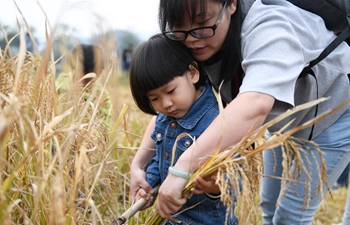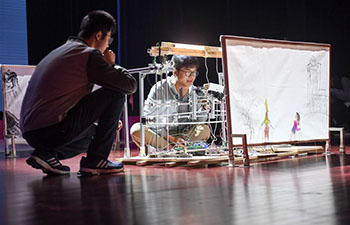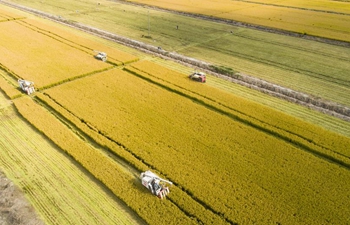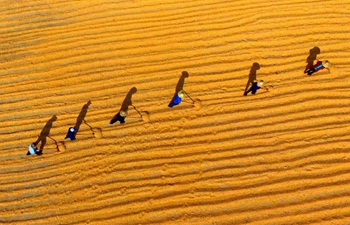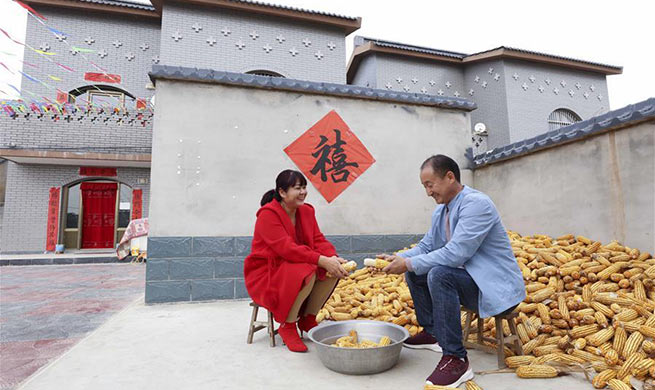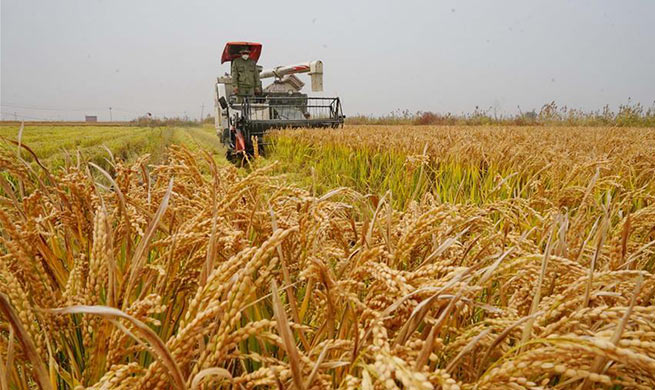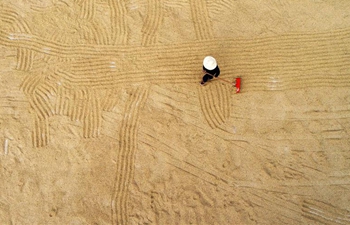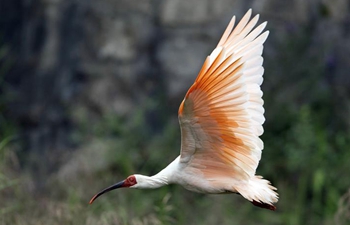BEIJING, Oct. 21 (Xinhua) -- Picking up a small piece of red paper from a basket of scraps, Zhao Xigang works back and forth with his scissors for a few minutes until the image of a goshawk perching on a pine tree emerges.
Most of Zhao's work is inspired by whatever material he has on hand. "Improvisation is the most vital part of the art of paper-cutting," says Zhao, 53, a professor of design science at Beijing University of Civil Engineering and Architecture. He is known for his somewhat avant-garde paper-cutting works.
The Chinese perspective on art stresses harmony and flexibility. "This is the wisdom of ancient people," says Zhao.
Paper-cutting is normally considered a traditional folk art. But Zhao says his is "a new kind of paper-cutting, a literate paper cutting."
"My work not only plays off an inheritance of traditional paper-cutting forms, it is a more Chinese expression of international art forms."
Small animals and fruits appear under his scissors, completed with single cut. Animals live in a white world and pine branches are bent by thick snow. It's a combination of fairy tale and natural worlds of beauty that are neither real nor unreal.
For him, the charm of paper-cutting lies in its completeness, simplicity and understanding: "That's the art style and the realm of life I've being pursuing."
In Zhao's world, humanity, society and nature are in a harmonious symbiotic relationship.
"It's beautiful to see the way they appreciate each other," he says. In his works, roosters and cabbages, hamsters and melon seeds, or fish and cats all coexist in harmony.
Lyu Pintian, a leading Chinese art critic, notes: "Zhao's works reveal both the aesthetics of modern art and the flavor of folk traditions."
Zhao also designs paper-cut illustrations for children's books, which are praised by readers for "expressing traditional culture with modern style."
He hopes the books will nurture a love of Chinese art in children.
Zhao grew up in rural Shandong Province, where he was introduced to folk arts like paper cutting, New Year paintings and performances that now inform his unique cultural interpretation in paper-cutting.
"My experience as a child in the countryside is my most valuable asset," Zhao says. "That experience allows my works to be created spontaneously as part of a dialogue with nature. Artists should never forget their childlike innocence."




